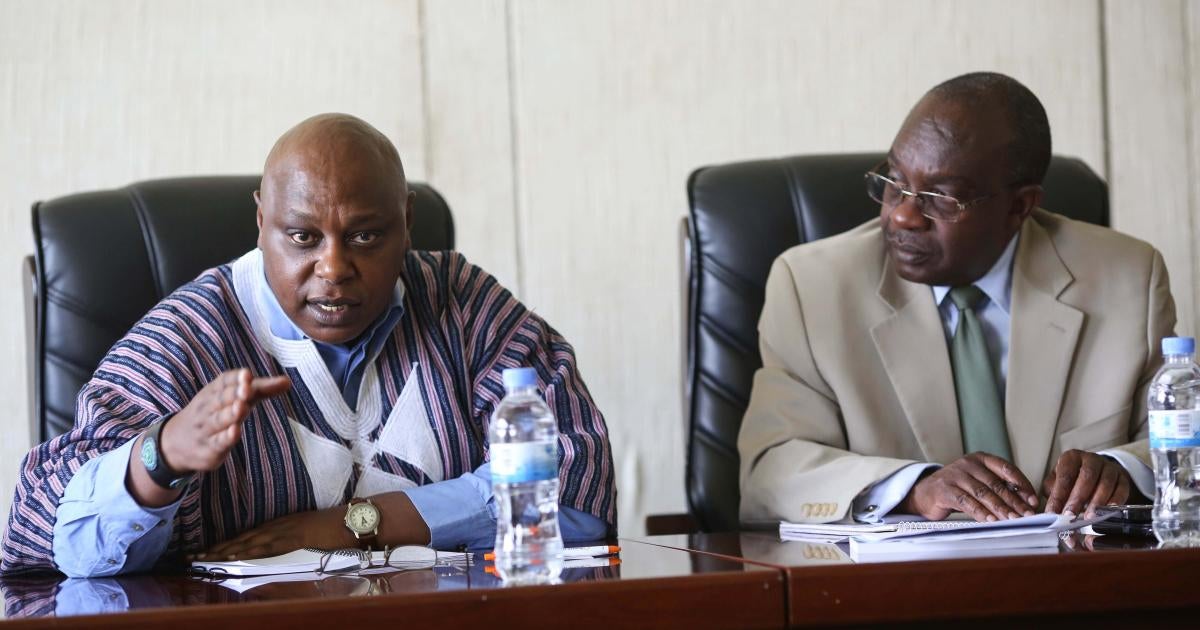Rwanda gets free pass at African Court
In January 2014, I was invited to visit Rwanda in my capacity as the UN special rapporteur on the rights to freedom of peaceful assembly and association.

I was struck by the amount of distrust among the wide range of people I met, especially within civil society. Rarely would anyone speak their minds when in meetings with several people. Fear was quasi-permanent in my interactions – fear of past violence, fear of running afoul of the government, and fear of falling victim to various overly broad laws against genocide denial, spreading false information, or incitement to insurrection. When I reported back to the UN Human Rights Council, I shared my concerns about opposition to vigorous debate and free expression of opinions, the government’s hostility toward peaceful initiatives by its critics, and the legal framework that silences dissent.
These warnings were not heeded. Indeed, the international community has long given Rwanda a pass due to the government’s remarkable advances in rebuilding the country after the 1994 genocide. And almost a decade since my visit, it is clear that by in doing so it has also blindly supported a government whose policies and practices of criminalising peaceful public disagreement have quashed dissent and entrenched fear among the population, even beyond its borders. When I conducted my visit, one incident that exemplified my concerns was the government’s takeover of one of Rwanda’s last independent human rights organisations the year before. In July 2013, a small number of members of the Rwandan League for the Promotion and Defense of Human Rights (LIPRODHOR) had organised a meeting and voted in a new board in an attempt to stop the group’s critical work. This action had violated both the organisation’s rules and the national law on NGOs. Yet three days later, the Rwanda Governance Board sent a letter officially recognising the new board. As I reported in 2014, the independence and ability of associations to run their internal affairs without external interference are foundations of the right to freedom of association. In this case, the government’s interference marked the effective dissolution of the independent organisation.
The group’s former president, Laurent Munyandilikirwa, who has since fled Rwanda, attempted to challenge the decision first through the organisation’s dispute resolution mechanism, and then through Rwandan courts, which dismissed the case in 2015. He then brought the case to the African Court of Human and Peoples’ Rights in Arusha, Tanzania. Six years later, on 2 December 2021, the court determined that Munyandilikirwa’s case was inadmissible because domestic remedies hadn’t been exhausted.
The court based its decision on an almost ridiculous technicality presented by the current counsel for the group: namely that the French version of the organisation’s statute states that the decision of the internal dispute resolution committee must be submitted to the organisation’s General Assembly, and that because this was not done, Munyandilikirwa had not completed the process. Two judges questioned the ruling.
They pointed out that the English and Kinyarwanda versions of the statute do not include this requirement and added that the ruling made “little sense” given that the General Assembly had already refused to comply with the internal dispute resolution mechanism’s decision, which had been in Munyandilikirwa and the original board’s favour. In 2017, I filed a brief supporting Munyandilikirwa’s claims and arguing that the Rwandan government’s actions had constituted a clear violation of the right to freedom of association. For its part, the Rwandan government refused to participate in the proceedings, alleging that the court lacked impartiality and independence. It also announced in February 2016 that it was withdrawing its declaration allowing individuals to file complaints at the court, just before judges were due to hear another complaint against Rwanda. This refusal to engage with the court, though not surprising, was a blow for Rwandans wishing to challenge the government and access justice. The African Court had a unique opportunity to deliver justice on Rwanda and demonstrate its independence. It’s failure to do so is compounded by the fact that the Rwandan government has deprived its citizens of a valuable avenue of recourse when they feel the national justice system has failed.
These avenues for peaceful accountability and redress are always important, but perhaps even more in societies that have a history of division, tensions, and genocide.
The rights to freedom of expression, of peaceful assembly, and of association are essential for democracy and sustainable peace – especially in a country still deeply traumatised by its tragic past. Rebuilding a country is as much about rebuilding trust, goodwill, and hope among citizens as it is about rebuilding the economy – all of which are fostered by respect for human rights. Rwanda’s international partners should support the efforts of Rwandans to exercise these rights, which strengthen democracy’s ability to prevent social unrest by allowing and fostering diverse views and ensuring that dissent is peaceful. .. Maina Kiai is the founding director of Human Rights Watch's Alliances and Partnerships Program. He is a Kenyan lawyer and human rights activist who formerly served as the United Nations special rapporteur on the rights to freedom of peaceful assembly and of association.
Read the full article at the original website
References:
- https://www.hrw.org/africa/rwanda
- https://freedomhouse.org/report/transnational-repression/rwanda
- https://www.hrw.org/news/2013/08/14/rwanda-takeover-rights-group
- https://www.fidh.org/IMG/pdf/decision_of_african_court.pdf
- https://www.african-court.org/cpmt/latest-decisions/judgments
- https://www.fidh.org/en/q-a-on-laurent-munyandilikirwa-v-republic-of-rwanda-application-no
- http://freeassembly.net/wp-content/uploads/2017/01/UNSR-Maina-Kiai-Amicus-Brief-to-AfCHPR-in-Applic-23-of-2015-Laurent-Munyandilikirwa-vs-Rwanda-filed-on-5-January-2017.pdf
- https://www.hrw.org/news/2016/03/11/dispatches-rwanda-turns-clock-back-access-justice
